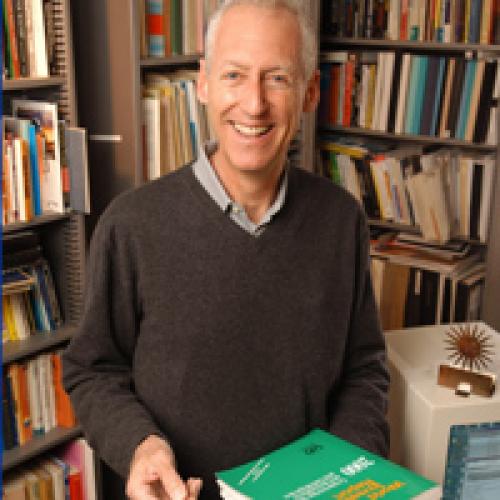Professor Emeritus Dan Schiller has authored a new book on the progression of telecommunications systems in the United States. In Crossed Wires: The Conflicted History of U.S. Telecommunications from the Post Office to the Internet, which will be released by Oxford University Press in February 2023, Schiller draws on archival documents to argue that it was not technology but political economy that drove the evolution of the telecommunications industry.
"U.S. telecommunications must be written in terms of the main contour-lines of American history," explained Schiller. "The expropriation of Native peoples, Civil War, growth of industrial capitalism, continuing expansion of U.S. imperialism—in all of these major trends, telecommunications played an essential part."
In the book, Schiller reveals how corporate interests have influenced the development of telecommunications systems as well as how corporate elites have had to contend against the ideas and organizations of workers and social activists.
"The people who built and operated the nation's networks often developed their own ideas about how telecommunications systems ought to be provided. And their ideas often differed from those of the investors and executives who managed these giant systems," he said. "To take one major example, during the early twentieth century, telephone workers and other workers demanded household access to telephone service. It took decades for them to obtain it, because telephone executives preferred to ignore them—but they ultimately prevailed."
A historian of information and communications, Schiller is an expert in the areas of telecommunications history, information policy, and the cultural production and political economy of capitalism. His books include Telematics and Government; Theorizing Communication: A History; Digital Depression: Information Technology and Economic Crisis; and Digital Capitalism—a term which he coined in the 1990s. His articles and commentaries on contemporary communications have been published widely in Europe, Asia, and Latin America, and he co-edits the book series, The Geopolitics of Information, for the University of Illinois Press.
